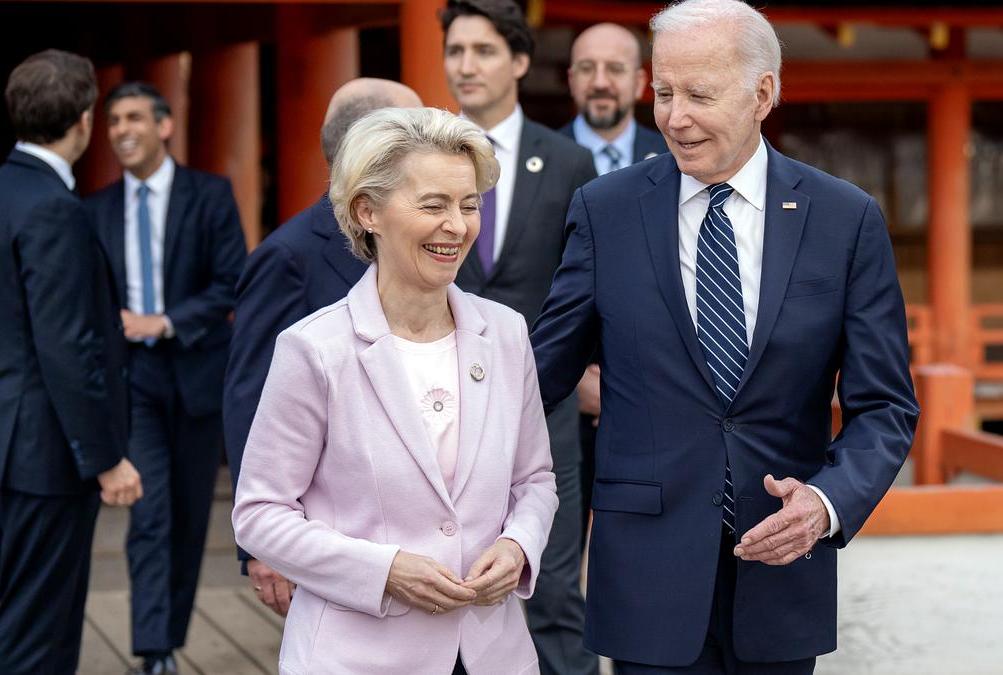
Harvey Dzodin, Senior Fellow, Center for China and Globalization
Jun 16, 2023
For some time now I’ve believed that the best way to improve the troika of China-European Union-United States relations is for Europe to start to exercise its strategic autonomy when its own national interests diverge from its ally, the United States.

Harvey Dzodin, Senior Fellow, Center for China and Globalization
Jun 16, 2023
For some time now I’ve believed that the best way to improve the troika of China-European Union-United States relations is for Europe to start to exercise its strategic autonomy when its own national interests diverge from its ally, the United States.

James F. Downes, Assistant Professor, Head of Politics and Public Administration Programme, Hong Kong Metropolitan University
Mathew Y. H. Wong, Assistant Professor, Education University of Hong Kong
Man Hoo So, Master's Candidate, European Political Economy, London School of Economics and Political Science
Jun 09, 2023
James F. Downes, Mathew Wong and Man Hoo So argue that the EU-China relationship has evolved considerably over recent years into a growing global rivalry in 2023. They argue that whilst the EU has become more interventionist towards China in 2023, there exists large divisions within the core EU institutions alongside EU member states towards relations with China.

James F. Downes, Assistant Professor, Head of Politics and Public Administration Programme, Hong Kong Metropolitan University
Mathew Y. H. Wong, Assistant Professor, Education University of Hong Kong
Man Hoo So, Master's Candidate, European Political Economy, London School of Economics and Political Science
Jun 09, 2023
James F. Downes, Mathew Wong and Man Hoo So argue that the EU-China relationship has evolved considerably over recent years into a growing global rivalry in 2023. They argue that whilst the EU has become more interventionist towards China in 2023, there exists large divisions within the core EU institutions alongside EU member states towards relations with China.

Wang Lei, Assistant Research Fellow, Institute of World Political Studies, CICIR
Sun Ru, Research Professor & Deputy Director, CICIR
Jun 08, 2023
Adjustments in European and American strategies may offer hope for a return to normal relations with China. The EU and U.S. should dump their political prejudices against China, take care of the common security of the world, try to remove risks and truly cooperate with China.
Sebastian Contin Trillo-Figueroa, Geopolitics Analyst in EU-Asia Relations and AsiaGlobal Fellow, The University of Hong Kong
Jun 06, 2023
Europe is altering its China policy to reduce reliance on vital technologies, while seeking a balance between protecting its interests and fostering cooperation. And by shifting the relationship, we have the opportunity to heal divisions, and prioritize shared interests that have been, expressed, ultimately benefiting everyone involved.
Sebastian Contin Trillo-Figueroa, Geopolitics Analyst in EU-Asia Relations and AsiaGlobal Fellow, The University of Hong Kong
Jun 06, 2023
Europe is altering its China policy to reduce reliance on vital technologies, while seeking a balance between protecting its interests and fostering cooperation. And by shifting the relationship, we have the opportunity to heal divisions, and prioritize shared interests that have been, expressed, ultimately benefiting everyone involved.
Jade Wong, Senior Fellow, Gordon & Leon Institute
May 04, 2023
Chinese President Xi Jinping’s outreach to the president of Ukraine, Volodymyr Zelenskyy, could be a game-changer. The call was welcomed by Zelenskyy, who called it “long and meaningful.” As Beijing steps into its role as a global peacemaker, the world is taking notice.
Sebastian Contin Trillo-Figueroa, Geopolitics Analyst in EU-Asia Relations and AsiaGlobal Fellow, The University of Hong Kong
May 03, 2023
The EU’s pursuit of becoming an autonomous and influential global power, while balancing relationships with the U.S. and China, was jolted by the Russian invasion of Ukraine. The EU aims to collaborate and compete as an equal with both powers, while improving its domestic strength, ensuring reciprocity, and linking trade to geopolitics, foreign policy, and security. And the Comprehensive Agreement on Investment, executing the EU strategy in Asia and the Indo-Pacific, and establishing a collective defense structure with operational objectives, are three projects that could help achieve these goals.
Sebastian Contin Trillo-Figueroa, Geopolitics Analyst in EU-Asia Relations and AsiaGlobal Fellow, The University of Hong Kong
May 03, 2023
The EU’s pursuit of becoming an autonomous and influential global power, while balancing relationships with the U.S. and China, was jolted by the Russian invasion of Ukraine. The EU aims to collaborate and compete as an equal with both powers, while improving its domestic strength, ensuring reciprocity, and linking trade to geopolitics, foreign policy, and security. And the Comprehensive Agreement on Investment, executing the EU strategy in Asia and the Indo-Pacific, and establishing a collective defense structure with operational objectives, are three projects that could help achieve these goals.